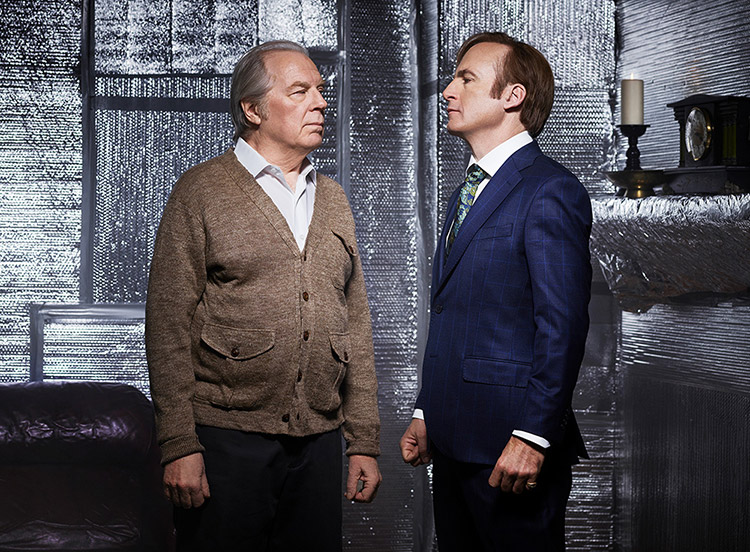
Tonight one of TV’s most acclaimed—and complicated—shows returns.
Technically, Better Call Saul is a prequel to Breaking Bad, AMC’s breakout drama that has been hailed as one of the best TV series of all time. The set up alone created almost impossible expectations, but the first two season showed that it wasn’t overly concerned with living in the shadow of Walter White and Jesse Pinkman; Better Call Saul wanted to become something all its own.
Because, unlike Breaking Bad, which took a very simple premise—can a mild-mannered chemistry teacher become a drug kingpin?—and fleshed it out over five seasons, Better Call Saul is something entirely different.
It’s a modern day parable.
***
In case you haven’t seen the first two seasons of Better Call Saul (they’re both streaming on Netflix if you need to catch up), the series follows a lawyer named Jimmy McGill (played by Bob Odenkirk), or as he will later become known (and as Breaking Bad fans know him), Saul Goodman.
Years before he encounters Walt and Jesse, McGill is a broke public defender, who eventually tries to strike out on his own and start his own firm. But, McGill’s greatest strength proves to be his greatest weakness: He’s scrappy, charming and not afraid to cut corners or play fast-and-loose with moral codes to get the job done.
And this is what makes the show so great.
Yes, it’s at times a gripping legal drama; yes, it’s at times a dark comedy; yes, at others, it’s a crime-world thriller. But, at its core, Better Call Saul asks big questions about human nature. And for Christians, those questions have overtly spiritual implications.
***
Odenkirk’s character is a complex and interesting stand alone individual, but he’s also a surrogate for the extreme polls of the human condition.
At times, he’s capable of great loyalty: He selflessly cares for his mentally ill, yet brilliant, older brother. In flashbacks, we see that he loved his father deeply. He’s a devoted boyfriend.
But, he’s also capable of acts of cutting betrayal: He deceives his brother in order to help himself; he steals from his father’s business when he sees others doing the same; he risks his girlfriend’s career in a misguided effort to advance it.
Saul is charismatic and kind, but also capable of hurting those closest to him.
He’s a hard worker, willing to go to extreme lengths to help his clients and even, at times, expose injustice. But, he also cuts corners and bends the rules of play in the process. In many ways, Saul is a living dichotomy. But, unlike so many of peak TV’s great anti-heroes (Don Draper, Tony Soprano) and heroes (Jack Bauer, Michael Bluth), he isn’t one or the other: He’s both at the same time.
Unlike other anti-heroes, he’s not driven by a singular vice (think about Walt White with greed; Dexter, with bloodlust; Don Draper with sex; Jesse Pinkman with addiction). Saul is more complicated than that. His vice is his nature. It’s his constant pull to betray what he knows is right because the temptation to do so is simply too great to resist.
Saul demonstrates why, many times, the message of the Gospel can seem so complicated. We need redemption not because we aren’t capable of understanding pure ideals and acts of virtue, but because we too are capable of being the “good guy” and the “bad guy” at the same time.
No other character has made this reality as clear as Saul Goodman.
***
We live in a time of easy labels. It’s an era where nuance is often ignored in favor of grandstanding, where shades of gray are often cast as black and white.
But Better Call Saul excels in something that no other show does. It presents a character who wrestles with the complexity of morality, and, in turn, shows why the pull of sin can be so much greater than the draw of being noble.
It demonstrates the need not only for an ethical code and the rooted principles offered by Christianity but also the importance of a higher power who can offer redemption when all of our actions fail.
If you’ve seen Breaking Bad, you know how things end up for Saul Goodman. But, as it turns out, seeing how Jimmy McGill got there is far more interesting.





















